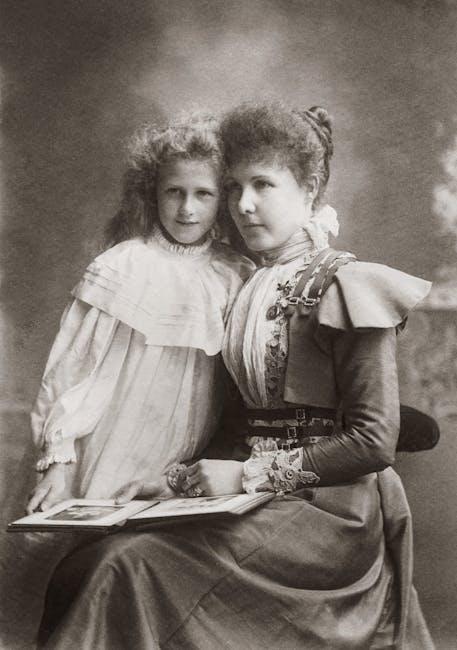In an era where the pace of life often outstrips the time we have to reflect on our personal and familial narratives, the concept of building a family legacy grounded in personal values has never been more pertinent. As we navigate the complexities of modern life, we find ourselves questioning not only the material wealth we pass down but the enduring values and principles that define who we are. This article delves into the strategic process of crafting a family legacy that not only withstands the test of time but also serves as a beacon of the values we hold dear. By dissecting the foundational elements of legacy building, we aim to provide a comprehensive roadmap for those seeking to align their family’s future with their deepest convictions. Through an analytical lens, we explore how to effectively communicate, embody, and preserve these values, ensuring they resonate through generations. With confidence and clarity, we invite you to embark on this transformative journey towards a legacy that truly reflects the essence of your personal ethos.
Identifying Core Values and Their Impact on Legacy Building
In the pursuit of building a family legacy that truly mirrors your personal values, identifying those core values is paramount. These values are the guiding principles that influence every decision and action you take. They shape your family’s identity and set the tone for future generations. Core values are not merely abstract concepts but are reflected in tangible ways within your family dynamics and interactions. Consider asking yourself what values have been pivotal in your life and how they have shaped your choices. Are they centered around integrity, compassion, innovation, or perhaps resilience?
Once identified, these values serve as the foundation for your legacy. They impact how your family is perceived and the mark it leaves on the world. To ensure these values are effectively embedded within your legacy, consider the following approaches:
- Storytelling: Share stories that illustrate these values in action, ensuring they become part of your family’s narrative.
- Traditions: Establish family traditions that celebrate and reinforce these values, making them a lived experience.
- Role Modeling: Lead by example, demonstrating these values through your actions and decisions.
- Open Dialogue: Encourage conversations around these values, allowing family members to understand and embrace them.
Through these methods, your core values not only define your family’s ethos but also create a powerful, enduring legacy that resonates through time.

Strategic Planning for Long-term Family Legacy Sustainability
To ensure your family legacy not only survives but thrives across generations, it is crucial to embed strategic planning into its foundation. Begin by identifying the core values and principles that resonate most with your family. These values serve as the compass that will guide decision-making and actions, fostering a unified vision for the future. Consider crafting a family mission statement that encapsulates these values, acting as a touchstone for both current and future generations.
- Define Long-term Goals: Establish clear, actionable goals that align with your values. These should include both financial and non-financial objectives to ensure a balanced approach.
- Engage Multiple Generations: Involve family members from different generations in the planning process. This not only ensures diverse perspectives but also strengthens commitment to the legacy.
- Develop a Governance Structure: Implement a framework for decision-making that includes roles, responsibilities, and processes. This can help mitigate conflicts and ensure continuity.
By meticulously planning and aligning your family’s legacy with deeply-held values, you create a resilient framework that can adapt to change while preserving the essence of what your family stands for. This strategic foresight ensures that your legacy remains a beacon of inspiration and strength for generations to come.

Incorporating Personal Values into Family Traditions and Practices
To seamlessly weave your personal values into family traditions and practices, start by identifying what truly matters to you and your family. Reflect on the core principles you wish to uphold, such as empathy, sustainability, or creativity. Once identified, integrate these values into existing traditions or create new ones that resonate with your family’s ethos. For example, if environmental stewardship is important, consider initiating a yearly family tree-planting day or make recycling a collective family effort. By aligning your traditions with your values, you not only reinforce these principles but also pass them down to future generations, creating a cohesive family identity.
- Empathy: Encourage open communication and emotional intelligence by setting aside time for family discussions or gratitude circles.
- Sustainability: Embrace eco-friendly practices, such as reducing waste and opting for sustainable gifts during holidays.
- Creativity: Foster innovation by establishing art nights or collaborative storytelling sessions, allowing each family member to express their unique perspective.
By consciously incorporating these values, you craft a family legacy that is not only meaningful but also adaptable, ensuring its relevance as your family evolves over time. This deliberate approach not only strengthens family bonds but also instills a sense of purpose and belonging in every member, creating a legacy that is both personal and enduring.

Measuring the Success and Evolution of Your Family Legacy
To truly understand the impact of your family legacy, it’s crucial to establish clear metrics for success that resonate with your personal values. Start by identifying what aspects of your legacy hold the most significance—be it educational achievements, philanthropic contributions, or entrepreneurial endeavors. Set specific goals and periodically assess these through both qualitative and quantitative measures. For instance, track the number of family members actively participating in legacy-related activities or evaluate the societal impact of your family’s charitable initiatives.
As your family legacy evolves, it’s important to remain adaptable and open to change. Regularly revisit your legacy goals to ensure they align with current family dynamics and societal shifts. Consider the following strategies for ongoing evaluation:
- Engage in annual family meetings to discuss progress and gather feedback.
- Implement surveys or interviews to capture diverse perspectives within the family.
- Document milestones and share stories that illustrate the legacy’s evolution.
By embracing a reflective approach, you ensure your family legacy not only withstands the test of time but also remains a true reflection of your core values.



